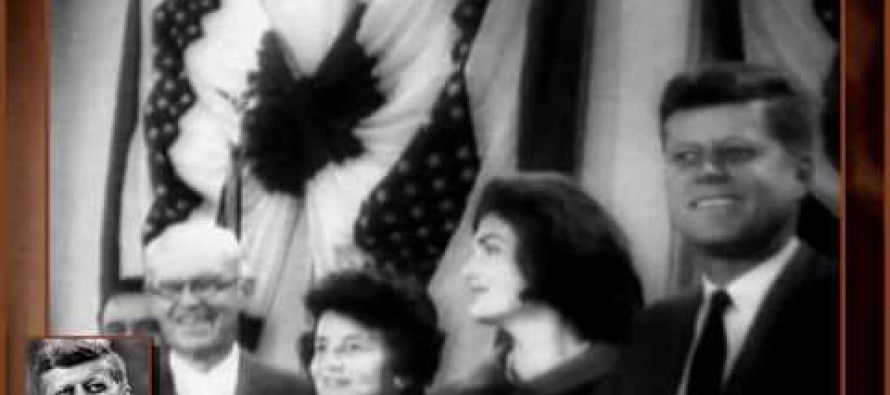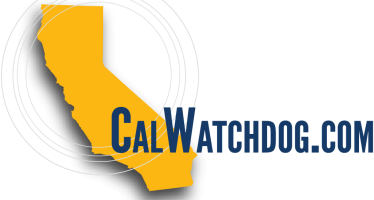Taxes, Whitman and Skelton

As I’ve noted over the years many times, L.A. Times California columnist George Skelton is the man who never saw a tax he didn’t like — or a tax cut he didn’t hate.
He’s at it again today, attacking Meg Whitman’s proposal to eliminate the state capital gains tax, whose top rate currently is 9.3 percent (on top of a current federal cap gains tax of 15 percent).
In fact, the cap gains tax is a triple tax. First, your income is taxed; then your investments are taxed by inflation eroding their value; finally, your investments are taxed on their capital gains, which is not protected from inflation (unlike your income, which is indexed).
That’s why supply-side economist Jude Wanniski once calculated that the cap gains tax was a negative tax — it drives out so much investment that it eliminates more in other tax collection — taxes on incomes, sales, property, etc. — than it actually collects itself.
Skelton brings up envy — that supposedly mainly the rich benefit and, “But only 20% of income tax returns report capital gains.” But that’s because most people aren’t day traders in stocks. They wait many years to cash in. But eventually, most people — including the middle class — get hit with this debilitating tax, usually after most of their capital gains have been wasted through inflation.
Skelton also plays fast and loose with the numbers: “Capital gains accounted for nearly 22% — $10.8 billion — of the personal income tax in 2007, the latest year for which the Franchise Tax Board has complete data.”
But Gov. Schwarzenegger’s January budget proposal noted:
In 2007, this component accounted for over 21 percent of the personal income tax. Capital gains are highly volatile. Gains reported by taxpayers increased 10.5 percent in 2007 and plunged an estimated 61.5 percent in 2008. They are expected to decline further by 15 percent in 2009, before bouncing back with 40 percent growth in 2010.
We’ll see what the real numbers are after 2010. But — and this is crucial — if there had been no cap gains the past two years, California would have “lost” only about $3 billion in cap gains tax receipts. But if the tax had been eliminated, California again would have become an investment-friendly state, boosting business growth, creating jobs, raising taxes in other areas (especially sales and income taxes), while reducing unemployment and its associated costs to the state treasury in unemployment, health and other benefits.
Tax volatility
Moreover, as we’ve seen during the dot-com boom a decade ago and the real estate boom a few years ago, all the state does when good times goose cap gains revenue upward is waste the new revenue on spending the state can’t sustain. By getting rid of the cap gains tax, revenues would be evened out and the temptation to overspend would be reduced — the budget reform this state needs most.
What I’ve been writing about here, folks, is a dynamic look at the economy. When you tax something, you get less of it. When you cut taxes on something, you get more of it. So — cut cap gains taxes and you’ll get more capital investment and more business creation and more jobs creation and, yes, more tax revenues (in other areas).
Skelton and other tax obsessives think in static terms: cut a tax, and you lose the revenue, gaining nothing anywhere else.
Well, if you’re still not convinced, let President Kennedy, a Democrat, explain it for your in the YouTube at the right.
Reaganomics worked
Skelton brings up the first President Bush’s jibe, in the 1980 election, that Ronald Reagan’s tax cut proposals (enacted in 1981-83) were “voodoo economics.” Except, who produced the tremendous prosperity of the 1980s? Reagan and his tax cuts. And who pledged, in his 1988 election campaign, “Read my lips! No new taxes!” — then treacherously raised taxes in 1990, crashed the economy, and then lost his re-election bid in 1992? George H.W. Bush. (YouTube of Bush’s 1988 speech at the right.)
If Skelton is so opposed to “Voodoo economics,” then he should spell out what he means: returning the top federal income tax rate, currently 35 percent, to the 70 percent it was before Reagan’s tax cuts. And no indexing for inflation, which Reagan also enacted, meaning by now, 30 years later almost, the whole middle class would be paying 70 percent federal income tax rates, plus 9.55 state income tax rates — nearly 80 percent combined taxes on the middle class. Do you really want to repeal “Voodoo economics,” Mr. Skelton?
Whitman’s mistake
Whitman, unfortunately, makes a mistake, as quoted by Skelton: “Across-the-board cuts eventually will increase revenue, she says, ‘but there is a one- or two-year lag. Even for President Reagan, in his second year, revenues were down’.”
Meg should check with Art Laffer, who helped design Reagan’s tax cuts. The cuts were enacted in 1981. But they were mostly delayed until 1983. Here’s Laffer’s description of what happened (no online link):
in 1981 when President Reagan’s tax bill passed, the President gave me a congratulatory call, yet he sensed early in the conversation that I was not as excited as he thought I should be. He said, “What’s the matter? You’re not going to pour cold water on the tax bill, are you?”
And I said, “Oh, no, no, sir. I’m really ecstatic we passed the bill.”
“What’s the matter?” he said, “I mean, are you upset we didn’t get the full 30% cut in taxes, we only got 25%?”
“No, sir. I’m really amazed that you got 25%. I didn’t think you’d get that much. It’s just incredible that you got the 25%. No one expected us to get the full 30.”
“Well then what is it that’s bothering you?”
“Well, sir, it’s that you phased in the tax cuts.”
“You’ve got to be practical, Arthur. We have all of these Congressmen and all of these Senators who are worried about fiscal solvency and deficits. By phasing in the tax cuts, we were able to project smaller deficits, giving the Senators and Congressmen cover to vote for the bill. Quite simply that’s why we have such a huge majority in both parties voting for our tax bill and our spending bill,” he said.
“I know, sir. It’s really wonderful that you were able to get such a large bi-partisan vote, but let me ask you a question, sir. How much would you shop at a store a week before that store has its big discount sale?”
The President hesitated for a moment and then said, “Oh my gosh. How bad is it going to be?”
“Sir, it’s going to be a barn burner. People are going to defer income until January 1, 1983, and that deferral will have a huge impact on the U.S. economy,” I explained.
Shortly after my conversation with the President, on December 21, 1981 I was interviewed by Barron’s with regard to the tax bill. Here’s what I said in the midst of the fray:
Q. Well, are you disappointed, so far, with Reaganomics?
A. I am not surprised about what’s happening with the current Administration. But I’m disappointed, frankly, that [Budget Director David] Stockman had enough influence to convince the President to postpone the tax cuts.
Q. Why?
A. Let me answer this way: Suppose you have to go back to school and not earn income in one of the next two years. But you get to choose which year. Which year do you go back? This year, when tax rates are high, or next year, when tax rates are low? Which is the year you choose not to earn your income? That is what we are seeing happen.
So people were deferring their income so that they could take advantage of lower tax rates in the future, and they were accelerating expenses so that they could deduct them ahead of the tax cuts.
That was what I was saying then. The interview continues:
Q. What is your economic forecast, Arthur, for next year?
A. 1981, obviously, has been a bad year because they postponed the tax cuts, and 1982 doesn’t look great.
Q. You said before, Arthur, that you think the timing of Reagan’s tax cuts is off. Are you satisfied, though, that once the full impact of the program is felt…?
A. Once we are in ’83 and ’84, we are going to be in a great economy.
Q. You sound pretty definite about that.
A. Oh, yeah, there is no question of that in my mind. I couldn’t be more certain of a proposition than I am of that, given the uncertainty of my profession. Everything I look at, the fastest-growing economies in the world — from the Ivory Coast to Hong Kong to whatever— all have low tax rates. High taxes reduce the incentive to profit, and you just don’t expand really rapidly through government. Especially, not through redistribution policies.
That’s what happened: 1982 was a Depression. I got out of the U.S. Army in February and in my home state, Michigan, unemployment was 15 percent, so I couldn’t get a job and left. (Thanks to the foolish David Stockman, himself a Michigander.)
But in 1983 and 1984, the economy expanded at is fastest rate since the 1960s, a rate not exceeded since then. And the 1980s growth was strong, and solid, not the hollow growth of the false real-estate boom of the mid-2000s.
I wish Skelton would check out what’s really going on. Laffer talks to reporters. I’ve been talking to him for years.
Well, you read what’s really going on here, folks — on CalWatchDog.com.
— John Seiler
Related Articles
CalWatchdog morning read — June 13
CalWatchdog Morning Read – June 13 By CALWATCHDOG STAFF CA Republicans diversifying What can be done about mass shootings?
Why you need a gun…
Gun controllers insist that we disarm ourselves. That the police will “protect” us. Here’s the real world. In the placid
Say NO to unions, YES to Ganja
Katy Grimes: Of all the anti-free market moves, marijuana growers are now unionizing. This is what California has come to




